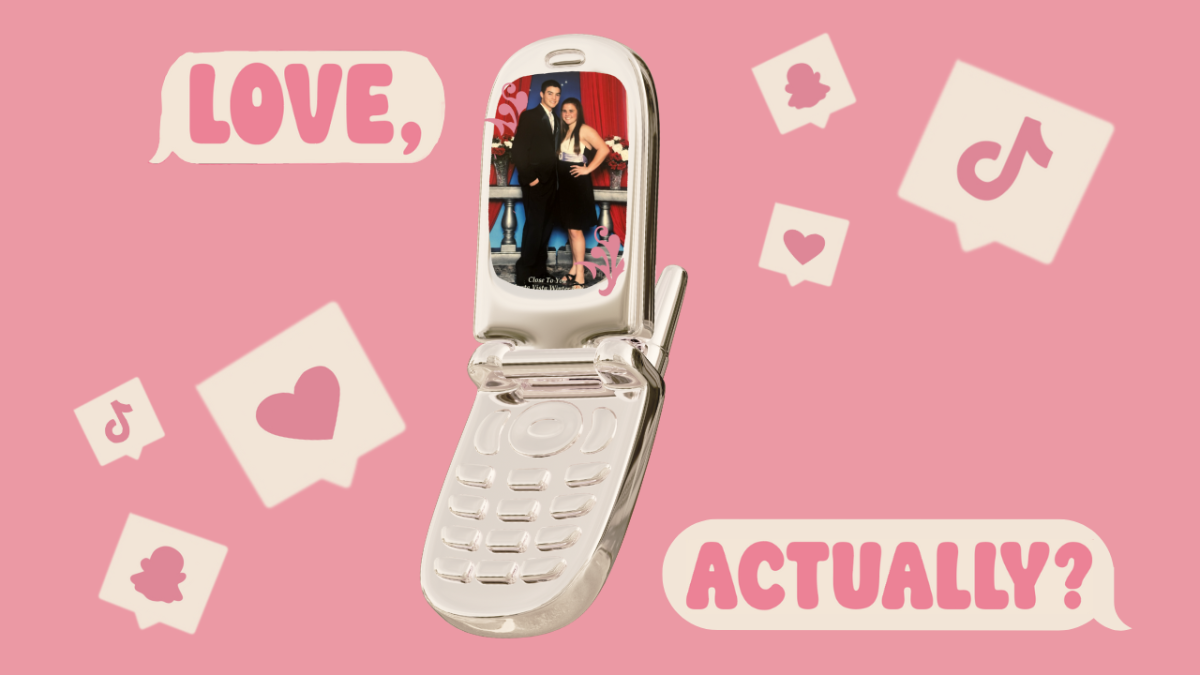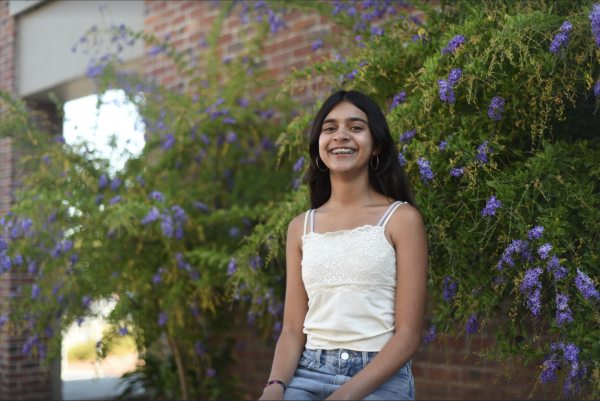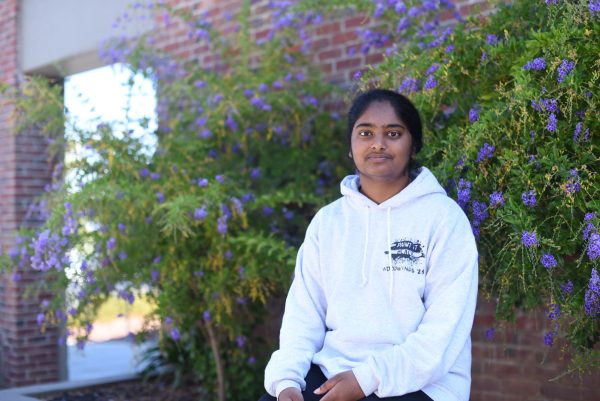“Hey, this guy thinks you’re cute.”
Sophomore Amelia Rojas Araya turned to look at her friend’s screen, where she was shown the profile picture of a boy on Instagram. After clicking the follow button, sliding into their DMs and frequently texting, it took four months for them to meet in person. For Araya, who values spending time with people in person, the lack of face-to-face communication caused a huge strain on their relationship. After months of playing phone tag, she inevitably felt the need to end it.
“It was a little more difficult because there’s only so much emotion you can convey through writing and emojis, so sometimes it’s hard to think of what the other person is thinking,” Araya said. “Actions speak a lot louder than words, and I feel like it’s very obvious in someone’s body language and the way they act when they start getting comfortable with you, which is a lot easier to tell in person than online.”
While Araya notes the negative impacts of social media on her personal experiences, others have found online platforms helpful for romantic communication. For Guidance Counselor Ashley Voigt, the easier access to communication found within social media has had its advantages, citing her experience with her now-husband. During high school, Voigt recounted how AOL Instant Messenger (AIM) — a popular online communication platform in the early 2000s — helped her grow her relationship in its early stages before the couple started connecting in person.
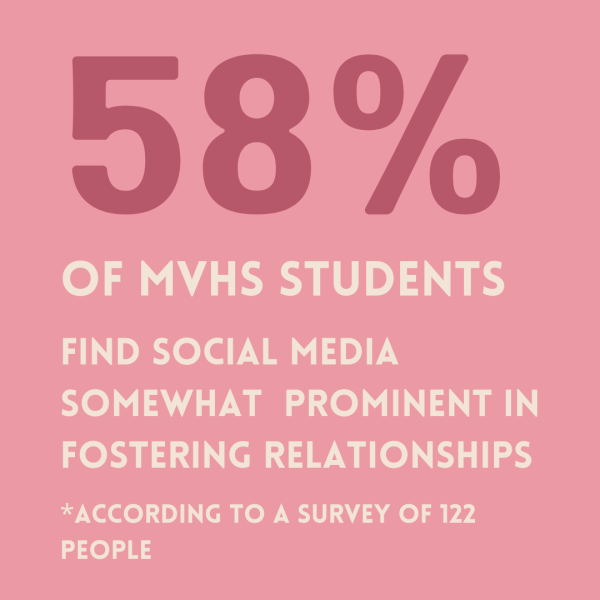
“We’re both a little introverted and talking in person was not comfortable for us, so AIM helped strengthen our friendship,” said Voigt. “We were also in different friend groups, so that made it easier to communicate. We also used to write letters to each other and hand them to each other, just as another form of communication because talking in person was a little bit more uncomfortable for both of us.”
With the rise of TikTok, Instagram and Snapchat in the past few years, Voigt agrees with Araya that there are pitfalls to excessive online connections. While AIM was also an online messaging network, it included logging off when a conversation had ended, enforcing a boundary that Voigt believes is no longer found in popular messaging networks today.
“The ability to constantly be communicating with someone or having their location on your phone kind of blows me away,” said Voigt. “The pressure to always be available to other people, whether it’s a romantic relationship or a friendship, is something I see as a negative. You shouldn’t have to be that connected to people all the time, and I could see that working negatively sometimes in relationships too.”
Similar to Voigt’s perception of a lack of boundaries through social media usage, Araya points out another side of this issue: the intrusiveness of relationship advice and false representation of real relationships. She recalls her favorite movie “La La Land,” which delves into the idea of losing someone, detracting from a happy ending but showing the reality of many real relationships — something she finds isn’t depicted on social media.
“It’s very normalized now on social media to trash your ex online and make trends about them, instead of silently healing yourself,” said Araya, “But I feel like sometimes, social media might sway you into being like, ‘Oh, I was right, he did this, so he’s the a**hole here, and I’m the better person.’ You don’t need some random TikTok or someone on Instagram telling you how to live your life. I think it’s important to remember that every relationship is different, every individual is different, and everyone has different experiences.”
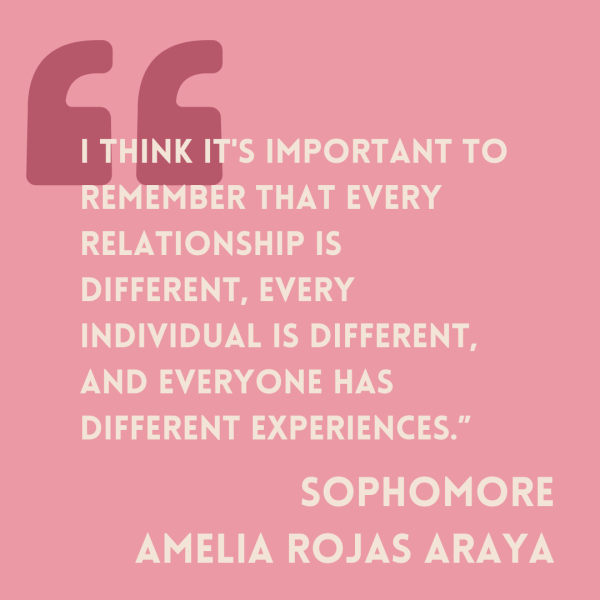
Sophomore Lewly Tzankov, who strongly disapproves of pursuing romantic relationships online, agrees with Araya’s sentiments, adding that teenagers often turn to social media for “examples of love.” He says that it is important that when two partners experience conflict with each other, “they need to figure that out for themselves” rather than taking advice, which is often falsified or glorified, from people online.
While social media’s role within real relationships may be becoming more accepted in society, others like Tzankov view this change as a definite ‘No.’ Looking at his parents who never talked online and have a strong relationship today, Tzankov believes that, in the absence of social media, a real connection will thrive. Recently, Tzankov finds that when people talk online, they are more prone to lying or pretending to have a different personality, making it harder to form relationships that feel genuine.
“When people meet people in the real world they get attached to the person they see and that they know, not to pictures online,” said Tzankov. “They see firsthand who that person is and how they deal with stuff, and I feel like with social media and modern dating, that does not happen.”
While Araya agrees with Tzankov that social media has presented its cons, she doesn’t necessarily feel that social media has killed romance. She adds that while love is more downplayed now — compared to traditional cliched aspects of dating such as carrying pictures in wallets — it hasn’t disappeared completely. Moreover, as romance has evolved, Araya believes people have also grown more comfortable with who they can be with, proving that change does not entail a death sentence to love altogether. Many times, it can be a way for people with geographical barriers to connect in addition to being a more viable option in the modern age for those with busier schedules or those who cannot afford to commute frequently.
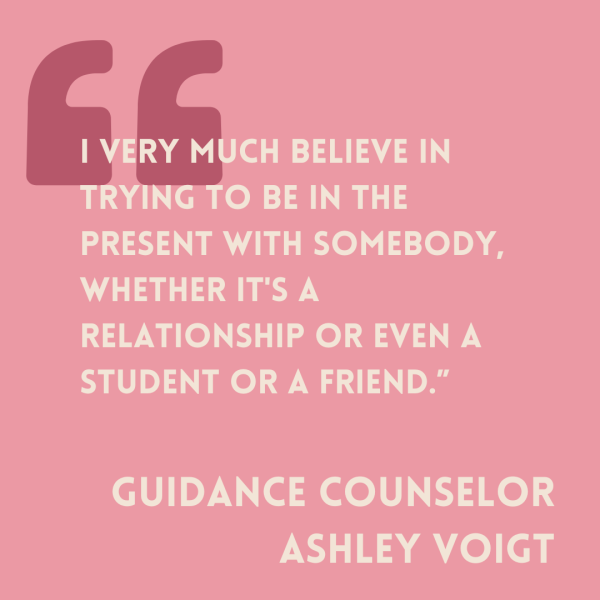
Along with Araya, as someone who has worked with high schoolers daily, Voigt acknowledges the collective difficulties and benefits of social media’s impact on communication and relationships. As a result, she believes it is important to take actionable steps to help students create a healthy balance between technology and the physical world to foster healthy and effective connections.
“Even as an adult, I’m on my phone a lot,” Voigt said. “I very much believe in trying to be in the present with somebody, whether it’s a relationship or even a student or a friend. So I think trying to unplug and just spending time away from that constant communication and spending time with people in person, can be meaningful. I hope that people can still experience that in this generation.”




